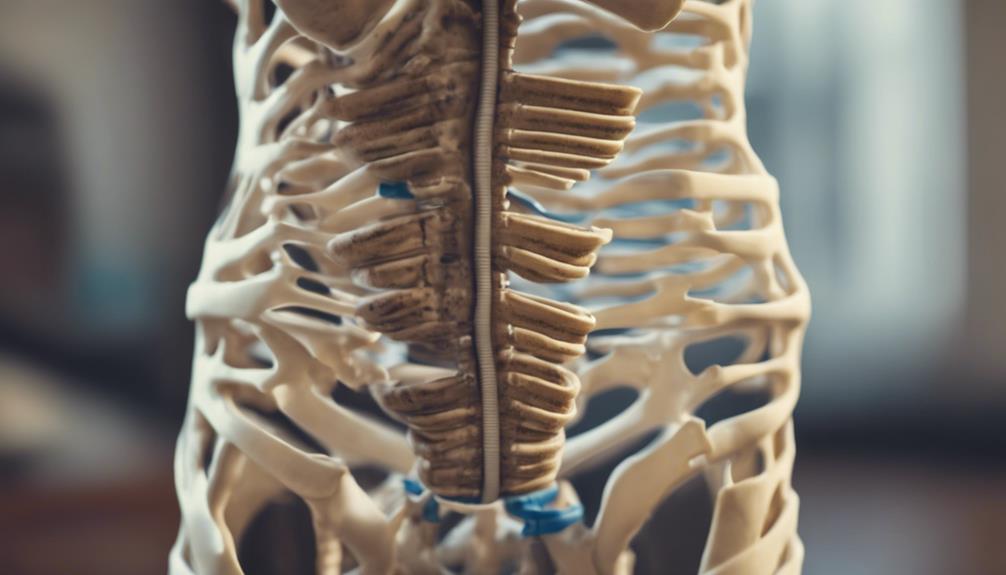Sudden weight loss in dogs can be a concerning indication of an underlying issue that warrants attention. When a dog experiences unexplained weight loss, it raises questions about their health and well-being.
Various factors can contribute to this decline, from dental problems affecting their ability to eat to more serious conditions like metabolic disorders or organ diseases.
Understanding the significance of this symptom and its potential implications is crucial for pet owners. By exploring the possible reasons behind sudden weight loss in dogs, one can begin to unravel the mystery and take the necessary steps to address their furry companion's health.
Key Takeaways
- Sudden weight loss in dogs may indicate dental, gastrointestinal, or metabolic issues.
- Consult a vet for a personalized weight loss plan and prompt diagnosis.
- Monitor for signs like decreased appetite, energy, and unusual behavior.
- Investigate unexplained weight loss promptly to address underlying health concerns.
Possible Dental Issues Impacting Weight
Dental issues in dogs can significantly impact their weight due to decreased appetite and chewing difficulties, leading to potential weight loss. When dogs experience dental problems such as periodontal disease, broken teeth, or oral tumors, they may find it painful to eat and may avoid their regular food. This can result in a reduced caloric intake, leading to weight loss over time.
Additionally, difficulty in chewing due to dental issues may cause dogs to swallow their food whole, leading to poor digestion and absorption of nutrients. It is essential for pet owners to monitor their dog's dental health closely and seek prompt veterinary care if any issues are detected to prevent weight loss and ensure overall well-being.
Dietary Changes and Weight Loss
When considering factors that contribute to weight loss in dogs, alterations in their dietary habits can play a significant role in this process. Changes in diet, whether intentional or due to external factors, can lead to weight loss in dogs. Below is a breakdown of how dietary changes can affect weight loss in dogs:
| Dietary Factor | Impact on Weight Loss | Example |
|---|---|---|
| Decreased Food Intake | Reduced caloric intake leading to weight loss | Sudden decrease in appetite |
| Poor Nutrient Quality | Inadequate nutrients can result in weight loss | Switching to a low-quality food |
| Increased Exercise Level | Higher activity levels can cause weight loss | Starting a rigorous exercise routine |
Understanding how dietary changes can influence weight loss is crucial in managing your dog's health effectively.
Effects of Gastrointestinal Disorders

Gastrointestinal disorders in dogs can significantly impact their overall health and may contribute to unexplained weight loss. These disorders can disrupt the digestive process, leading to inadequate nutrient absorption and weight loss.
When dealing with gastrointestinal issues in dogs, consider the following:
- Persistent vomiting or diarrhea can result in nutrient depletion.
- Inflammatory bowel disease can cause chronic inflammation and weight loss.
- Intestinal parasites may compete for nutrients, leading to weight loss.
- Food allergies or intolerances can trigger gastrointestinal distress and weight loss.
- Pancreatitis can affect digestion and nutrient absorption, resulting in weight loss.
Understanding and addressing these gastrointestinal disorders promptly is crucial for maintaining your dog's health and managing their weight effectively.
Weight Loss Due to Heart or Kidney Disease
Given the potential impact of heart or kidney disease on a dog's overall health and weight, understanding the correlation between these conditions and weight loss is vital for effective management and care.
Both heart and kidney diseases can lead to weight loss in dogs. Heart disease can cause a decrease in appetite due to reduced blood flow to the gastrointestinal tract, leading to weight loss over time. On the other hand, kidney disease can result in muscle wasting and loss of body condition due to the inability of the kidneys to effectively eliminate waste from the body.
Monitoring for symptoms such as increased thirst, changes in urination, lethargy, and decreased appetite is crucial for detecting these conditions early and initiating appropriate treatment to help manage weight loss in dogs.
Impact of Metabolic Disorders on Weight

Metabolic disorders in dogs can significantly influence their weight and overall health. These disorders can lead to unexplained weight loss and a range of health complications. When metabolic disorders affect a dog, it can manifest in various ways, impacting their weight management and well-being.
Here are some key points to consider:
- Fluctuations in appetite and energy levels.
- Altered metabolism affecting nutrient absorption.
- Changes in body composition and muscle mass.
- Increased water consumption and urination.
- Risk of developing secondary conditions like obesity or malnutrition.
Understanding the impact of metabolic disorders on weight is crucial in managing your dog's health effectively.
Consulting a Veterinarian for Evaluation
If your dog is experiencing rapid weight loss, it is imperative to seek guidance from a veterinarian for a comprehensive evaluation. A veterinarian can conduct a thorough physical examination to assess your dog's overall health and identify any underlying medical conditions that may be causing the weight loss.
Further diagnostic tests, such as blood work, urinalysis, or imaging studies, may be recommended to pinpoint the exact cause. Based on the findings, the veterinarian can develop a personalized treatment plan tailored to your dog's specific needs.
Early intervention is key in addressing any potential health issues contributing to the weight loss, so prompt consultation with a vet is crucial for ensuring your dog's well-being.
Monitoring Signs of Weight Loss

Upon consulting a veterinarian for evaluation of your dog's rapid weight loss, the next crucial step is vigilantly monitoring signs that indicate changes in weight and overall well-being.
- Physical Appearance: Check for visible ribs, spine, or hip bones.
- Behavioral Changes: Look out for decreased energy levels or lethargy.
- Appetite: Monitor any changes in eating habits, such as increased or decreased appetite.
- Hydration: Ensure your dog is drinking water regularly and not excessively.
- Coat Condition: Observe the quality of your dog's fur for any signs of dullness or shedding.
Importance of Prompt Diagnosis
Swift identification of underlying causes is crucial for effective treatment and management of a dog's rapid weight loss. It is essential to promptly diagnose the reasons behind the sudden weight loss to ensure the well-being of your pet. Here is a table highlighting the importance of prompt diagnosis in addressing your dog's weight loss:
| Importance of Prompt Diagnosis |
|---|
| Allows for timely treatment and management |
| Helps prevent potential complications |
| Enables targeted interventions for specific conditions |
| Improves the chances of successful weight restoration |
| Enhances the overall health and quality of life for your dog |
Implementing a Safe Weight Loss Plan

Prompt identification of the underlying causes of sudden weight loss in dogs is essential to implement a safe and effective weight loss plan that ensures the well-being and health of your pet.
To develop a successful weight loss strategy, consider the following:
- Consult a veterinarian: Seek professional guidance for a personalized weight loss plan.
- Monitor your dog: Keep an eye out for signs like decreased appetite, lack of energy, excessive drinking, or unusual behavior.
- Complete physical exam: Ensure your dog receives a thorough examination and necessary tests for an accurate diagnosis.
- Gradual weight loss: Aim for a gradual reduction targeting 1 to 2 percent of body weight per week.
- Investigate promptly: Address any unexplained weight loss promptly to prevent further health complications.
Exploring Further Resources on Pet Health
Exploring additional resources on pet health can provide valuable insights and information for enhancing the well-being of your beloved companions. Here are some related articles and resources that can further assist in maintaining the health and wellness of your pets:
| Topic | Description |
|---|---|
| Diabetes in Dogs | Learn about the signs of diabetes in dogs and how to manage this condition effectively. |
| Cat Weight Guidelines | Understand the average weight guidelines for cats to prevent obesity and promote health. |
| Risks of Obesity in Dogs | Discover the risks associated with obesity in dogs and find preventive measures to combat it. |
| Managing Separation Anxiety in Dogs | Tips on how to handle separation anxiety in dogs when owners are away from home. |
These resources can offer valuable insights into maintaining the health and well-being of your pets.
Conclusion
In conclusion, sudden weight loss in dogs can be a concerning indication of underlying health issues. It is crucial for dog owners to be vigilant of any changes in their pet's weight and seek professional guidance promptly.
By addressing potential causes such as dental issues, dietary changes, gastrointestinal disorders, and metabolic disorders, pet owners can ensure the well-being of their canine companions.
Early intervention and thorough diagnostic evaluations are essential in managing a dog's weight loss effectively.




